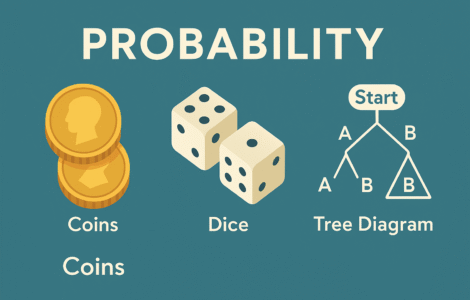
Probability
Free
About This Course
This course introduces learners to the fundamental concepts of probability, a branch of mathematics that deals with the likelihood of events occurring. Students will explore different events, probability rules, and how to calculate probabilities in various real-life contexts. Through problem-solving, they will develop an understanding of concepts which are essential for decision-making.
Learning Outcomes:
The learner should be able to:
- understand the terms random, experiment, outcome, sample space, event and probability.
- construct the probability space.
- determine probabilities from experiments and real-life data.
- differentiate between theoretical and experimental probabilities.
- identify and understand mutually exclusive and independent events.
- use probability trees to determine the probabilities of mutually exclusive and independent events.
- use Venn diagrams to determine probabilities.
- Define probability and explain its significance in everyday life.
- Differentiate between experimental and theoretical probability.
- Calculate the probability of single and combined events using addition and multiplication rules.
- Understand and apply concepts of mutually exclusive and independent events.
- Solve problems involving conditional probability and use tree diagrams for visualization.
- Interpret and analyse simple probability experiments and their outcomes.





